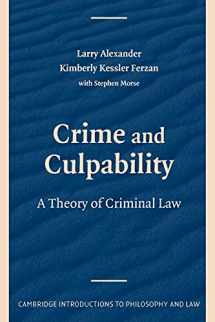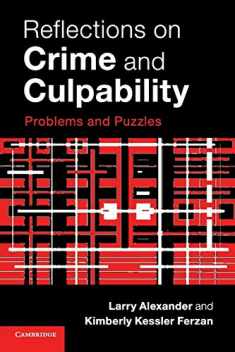
Crime and Culpability: A Theory of Criminal Law (Cambridge Introductions to Philosophy and Law)
Book details
Summary
Description
This book presents a comprehensive overview of what the criminal law would look like if organized around the principle that those who deserve punishment should receive punishment commensurate with, but no greater than, that which they deserve. Larry Alexander and Kimberly Kessler Ferzan argue that desert is a function of the actor's culpability, and that culpability is a function of the risks of harm to protected interests that the actor believes he is imposing and his reasons for acting in the face of those risks. The authors deny that resultant harms, as well as unperceived risks, affect the actor's desert. They thus reject punishment for inadvertent negligence as well as for intentions or preparatory acts that are not risky. Alexander and Ferzan discuss the reasons for imposing risks that negate or mitigate culpability, the individuation of crimes, and omissions. They conclude with a discussion of rules versus standards in criminal law and offer a description of the shape of criminal law in the event that the authors' conceptualization is put into practice.


We would LOVE it if you could help us and other readers by reviewing the book
Book review




